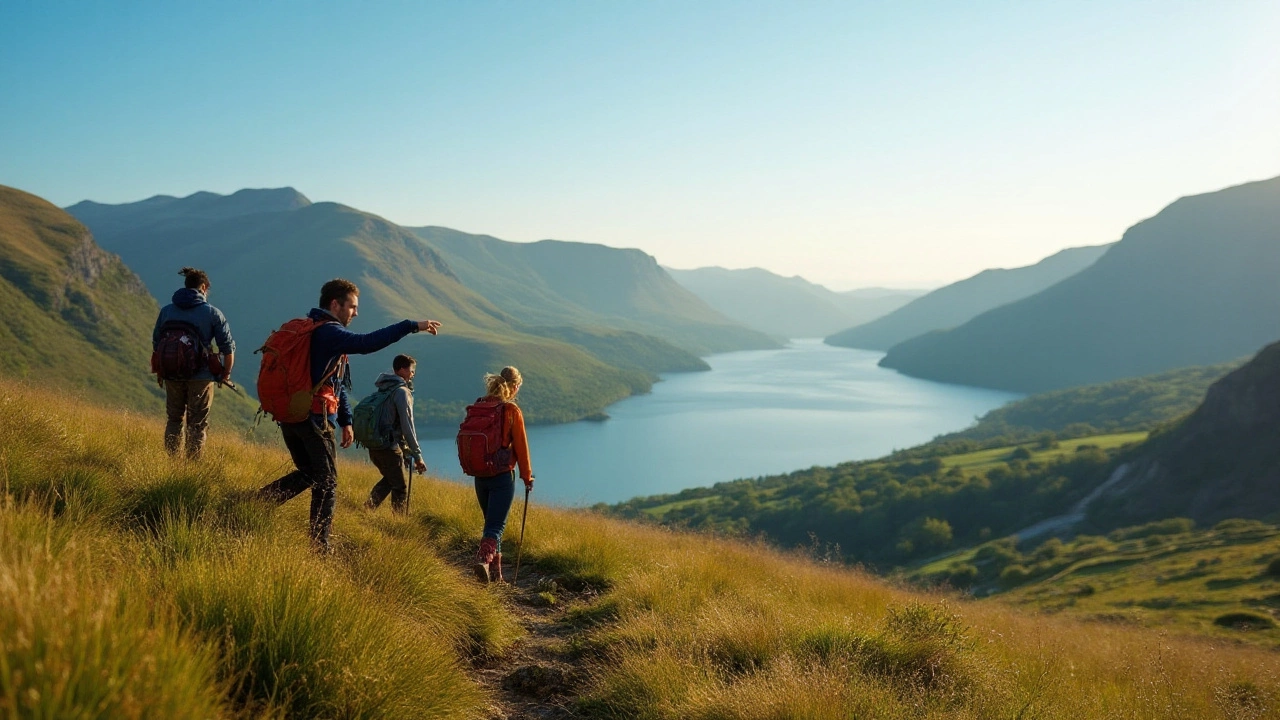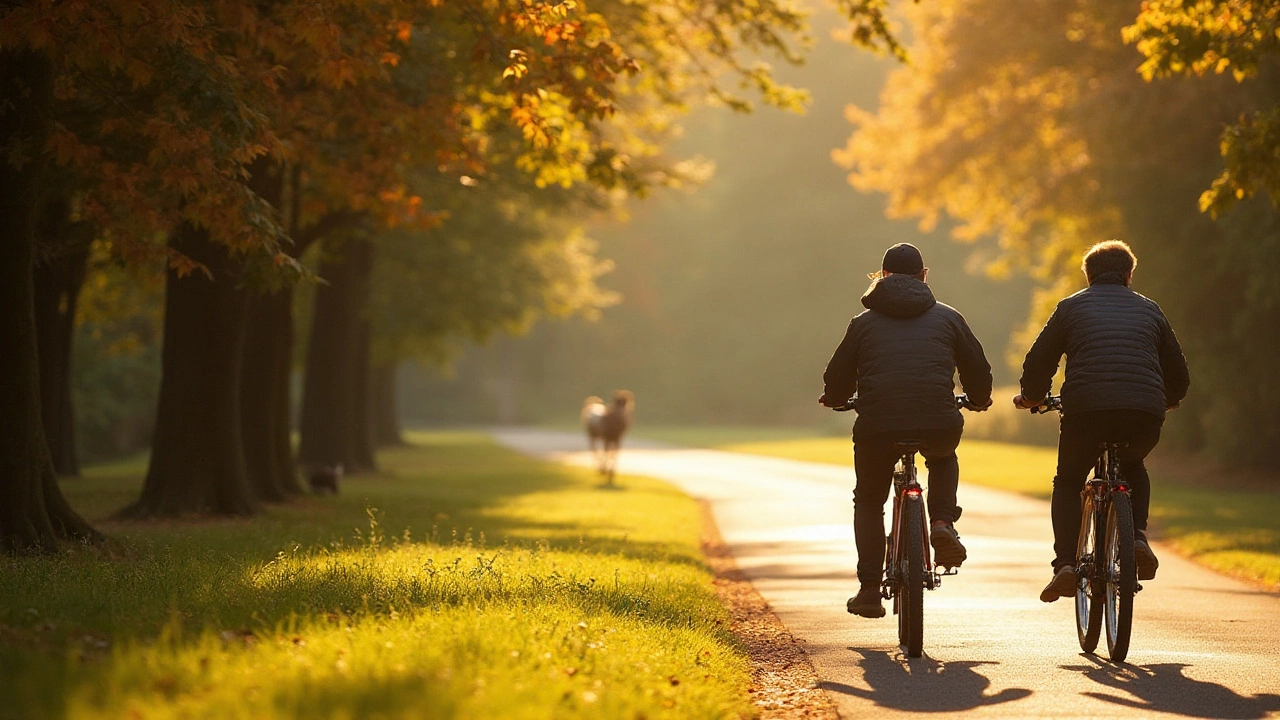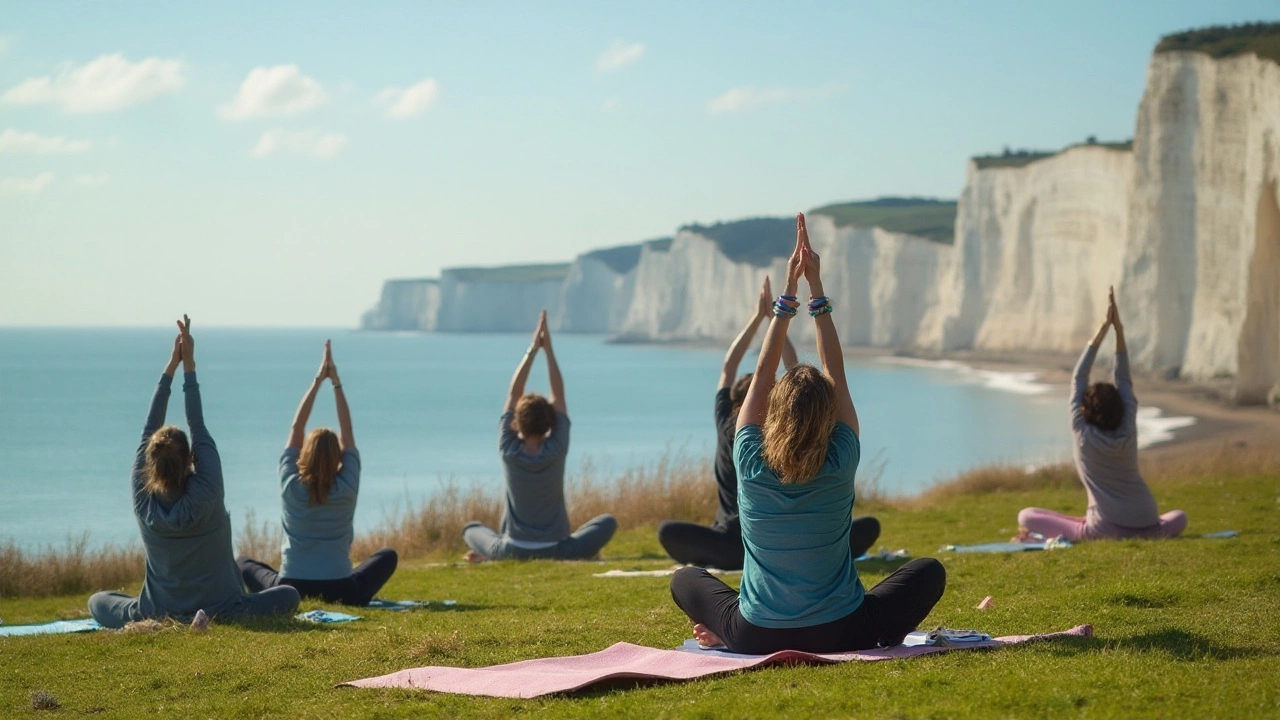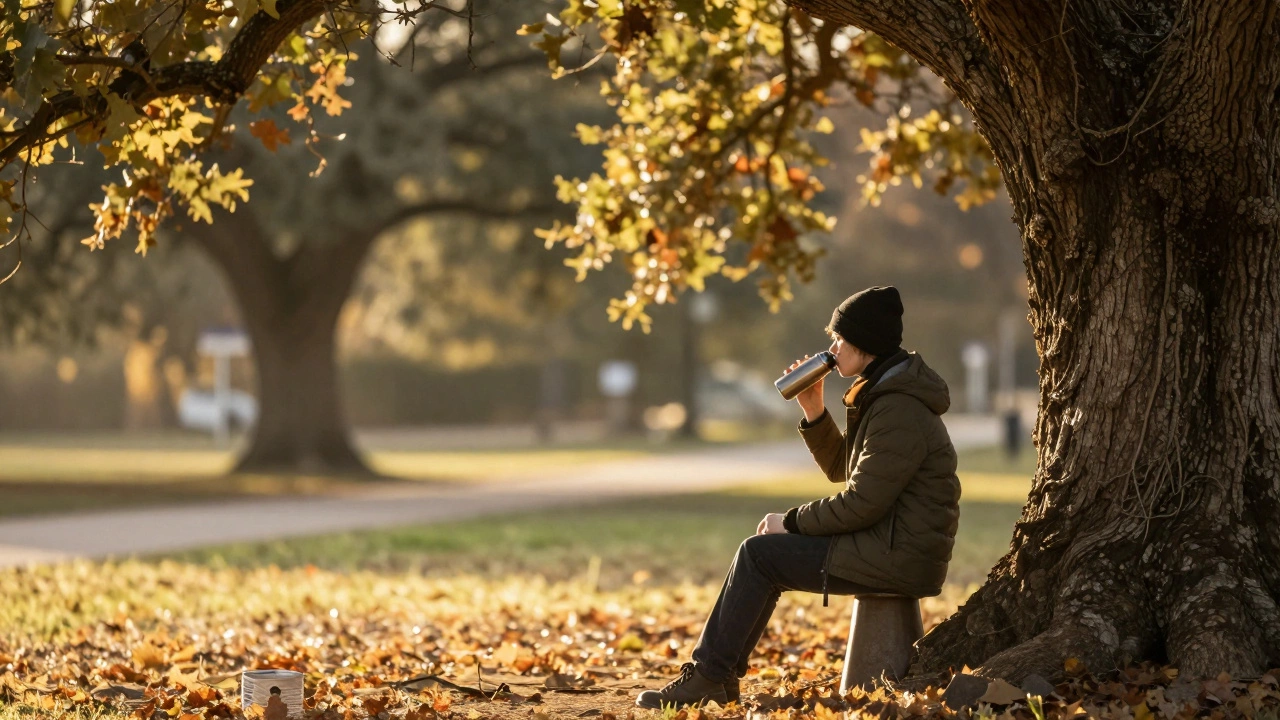Discover the Hidden Benefits of Outdoor Activities for Health and Wellbeing

Stepping outside is often the first step toward a healthier body and a rejuvenated mind. Engaging in outdoor activities provides a myriad of benefits that many don’t fully appreciate. It’s not just about the exercise; it’s about an experience. Walking along the beach as the sun sets, hiking up mountains surrounded by lush greenery, or simply jogging in a nearby park—all offer unique benefits that transcend mere physical fitness.
Outdoor pursuits boost mental health too. In a world where screens dominate our lives, nature provides a refreshing break that can significantly enhance our mental state. Simply put, the fresh air, the soothing sounds, and the expanse of space work wonders for our wellbeing. With diverse activities to choose from, one can find personal meaning and satisfaction in engaging with nature.
Moreover, joining outdoor activities often means meeting new people and forming connections, creating opportunities for shared adventures and memories. Just remember, it doesn’t require lavish equipment or extreme measures to enjoy these benefits—sometimes, simplicity, like a simple walk in the park, can be the most rewarding.
- Physical Health Benefits
- Mental Wellbeing Boost
- Social Connections and Learning
- Tips for Getting Started
Physical Health Benefits
The allure of the great outdoors is not just in its beauty but in its profound impact on our physical health. Engaging in outdoor activities provides immense benefits, starting with cardiovascular strength. Activities such as hiking, cycling, and swimming elevate your heart rate, enhancing cardiovascular endurance and reducing the risk of heart disease. This isn’t just hearsay; numerous studies have shown the life-extending advantages of regular activity in nature. When you venture outside, you're challenged by varied terrains that require different muscle groups, promoting well-rounded physical development.
Besides cardiovascular benefits, being active outdoors benefits your muscular and skeletal strength significantly. Whether it's the resistance of water against your limbs or the upward push against gravity when climbing a hill, these forces work your muscles and improve bone density, warding off osteoporosis. Sunlight plays a crucial role as well, being a natural source of vitamin D – essential for maintaining healthy bones. Admittedly, the balance between getting enough sunlight and protecting your skin can be delicate. Experts suggest brief sun exposure, perhaps 10 to 30 minutes several times a week, depending on skin sensitivity.
Breathing fresh air is another understated benefit. Unlike the often stagnant air indoors, outdoor air, especially in green spaces, has been found to be less polluted and richer in oxygen. This kind of clean, crisp air can significantly enhance lung capacity and efficiency. It's often claimed that air quality outdoors encourages deeper breaths, which increases the oxygen supply throughout the body, energizing cells and supporting overall vitality. As Dr. John Ratey from Harvard University notes in his book, "Spark: The Revolutionary New Science of Exercise and the Brain," exercise, particularly in natural settings, is as close as we've come to a magic pill for various health challenges.
Let's not forget calorie expenditure. Engaging in rigorous nature activities consistently torches calories, aiding weight management without the monotony of indoor workouts. Even leisure activities like gardening or brisk walking can be surprisingly effective at burning calories while also being pleasing. Unconsciously, when surrounded by nature’s beauty, people often put more effort into their activities, losing track of time and exertion levels. Studies have shown that the same distance covered outdoors often results in more significant health benefits than if done indoors due to variables like resistance from the wind and uneven surfaces.
"Nature itself is the best physician." - HippocratesAs such, engaging actively outdoors not only boosts our physical health but enriches our lives with the invigorating feeling that comes from being connected with nature. So simple yet so effective, these activities lead to a healthier lifestyle that’s as sustainable as it is enjoyable.

Mental Wellbeing Boost
Getting outside to engage in outdoor activities does wonders for mental wellbeing. It is no secret that spending time in nature can significantly affect our mood and psychological state. Research has shown that people who regularly spend time outdoors tend to report lower levels of stress and higher satisfaction with life. When you’re hiking a trail or paddling a serene river, your mind can disconnect from the daily stresses that come with routines and obligations. This tiny escape enables not just relaxation, but also mental rejuvenation as your senses absorb the tranquility around you.
The connection between nature and mental health is backed by numerous studies. A prominent study from Stanford University suggests that walking in nature reduces activity in a region of the brain linked to depressive thoughts. This compelling finding hints at why retreats to nature are highly sought after, particularly in our technology-driven lives where solitude and reflection can sometimes be hard to come by. Physical spaces filled with natural beauty offer a mental break, helping to reset our internal chatter and bring a sense of calm.
"Nature itself is the best physician," Hippocrates wisely noted, and this rings true as we see how natural settings can act as a balm for the chaotic human mind.
Around us, cities incorporate more green spaces due to their proven benefits to urban dwellers. Such spaces foster community engagement and provide a quick escape into peace, contributing to physical and mental wellbeing. For many, morning runs in the park or weekend picnics serve to alleviate symptoms of anxiety and depression. Engaging with nature in these ways releases endorphins, the body's natural mood elevators, further enhancing happiness.
Five Surprising Ways Nature Benefits Mental Health
- Enhances creativity and focus, encouraging out-of-the-box thinking.
- Promotes mindfulness and grounding, essential for reducing stress.
- Improves memory function and attentiveness, supporting mental agility.
- Boosts self-esteem through achievements in physical activities.
- Offers a natural remedy against feelings of isolation, fostering connections.

Social Connections and Learning
When we venture outside for outdoor activities, it becomes more than just a solitary journey. It's an opportunity to connect with others who share our love for the outdoors. Whether you’re part of a hiking club, a cycling group, or simply joining a community cleanup effort, these activities foster interaction. Making new friends or deepening existing relationships happens naturally when shared experiences are at the core. These connections not only add joy to the activity but also provide a support system, encouraging us to reach new heights and try new challenges together.
Imagine the learning encounters waiting outside the confines of our regular environments. Nature acts as an open classroom, offering lessons in ecology, navigation, survival skills, and even photography. For example, joining a bird-watching group can teach us not just about the species we witness, but about ecosystems and biodiversity. Many outdoor enthusiasts find themselves delving into areas of knowledge they’d never considered before. Sharing these learning moments enhances understanding and fuels curiosity, driving people to seek more knowledge and share it within their social circles.
The camaraderie formed during outdoor activities extends beyond casual acquaintances. Often, these interactions are conducive to personal growth and learning, fostering skills like teamwork, leadership, and communication, which are valuable in all areas of life. Joining a group hike up a challenging trail, for instance, requires teamwork and helps build those interpersonal skills invaluable in both personal and professional settings. Science backs this up; research from Stanford University suggests outdoor experiences can foster better mental health and community bonds, underscoring the importance of stepping out and connecting with others in natural settings.
In a time where digital connectivity often supersedes genuine human interaction, connecting with people through shared outdoor activities offers a refreshing narrative. Engaging in such environments encourages genuine conversation without the distraction of screens. Perhaps Felicity and I have our own story—we first bonded over a shared interest in kayaking. Those peaceful river trips allowed us to communicate in ways we’d never experienced indoors. Thus, outdoor activities present a dual opportunity: to learn about the world and each other in meaningful ways, combining social interaction with personal growth and enrichment.
"There is an immediacy to climbing that concentrates the mind wonderfully." —Jerry Moffatt, renowned rock climber
The idea of learning and connecting through nature is not novel, yet it remains powerful amidst the bustling, sometimes isolating urban and online lives. While exploring a mountain or cruising a river, the educational benefits are paired with personal moments of discovery that are enhanced when shared. These experiences reinforce a sense of belonging and community, and not to mention, they usually come sprinkled with fun and adventure, making the learning both effective and enjoyable.

Tips for Getting Started
Getting started with outdoor activities can seem daunting initially, especially when daily routines have become heavily indoor-oriented. The allure of gadgets, convenience of digital entertainment, and the hustle of city life often overshadow the benefits of the outdoor activities. However, beginning your journey towards integrating nature into your life doesn't have to feel overwhelming. A simple shift in mindset can work wonders. The first tip is to start small. You don't need to climb a mountain or run a marathon on your first day. Instead, consider activities that require little preparation or skill, like walking or cycling in your local park. These can gradually build your confidence and interest in more adventurous pursuits.
Investing in appropriate gear is another important aspect. Proper footwear, comfortable clothing, and hydration are key. Don't skimp on essentials that enhance your enjoyment and safety; it’s worth it. Finding a local club or group can be beneficial as well, as they often have organized events and activities catering to various levels of experience, which can be invaluable for learning and support. Engaging with a community also adds the benefit of accountability, which is crucial for sustaining the habit. This ensures you remain motivated, even when the couch might seem more inviting.
It’s equally important to understand and research the health benefits associated with each activity. Knowing that spending time in nature can lower stress levels, decrease anxiety, and make you happier can be a powerful motivator. The American Psychological Association, for example, notes that exposure to nature can help reduce feelings of anger, fear, and stress. Building knowledge about these benefits will provide the incentive needed to make outdoor activities a consistent part of your lifestyle.
"Nature is not a place to visit. It is home." - Gary Snyder
Finally, setting realistic goals tailored to your lifestyle will help maintain enthusiasm. Create a simple plan to incorporate physical activity three times a week at a schedule that suits you. Integrate it into your existing routine, like walking during lunch breaks or opting for public parks over gyms. Remember, the key is consistency, not intensity. Regular small increments in activity level can lead to significant health benefits over time, without causing burnout or fatigue. Keep track of your progress and celebrate your milestones to reinforce this new, healthier habit. This approach will help keep the journey enjoyable and sustainable.





